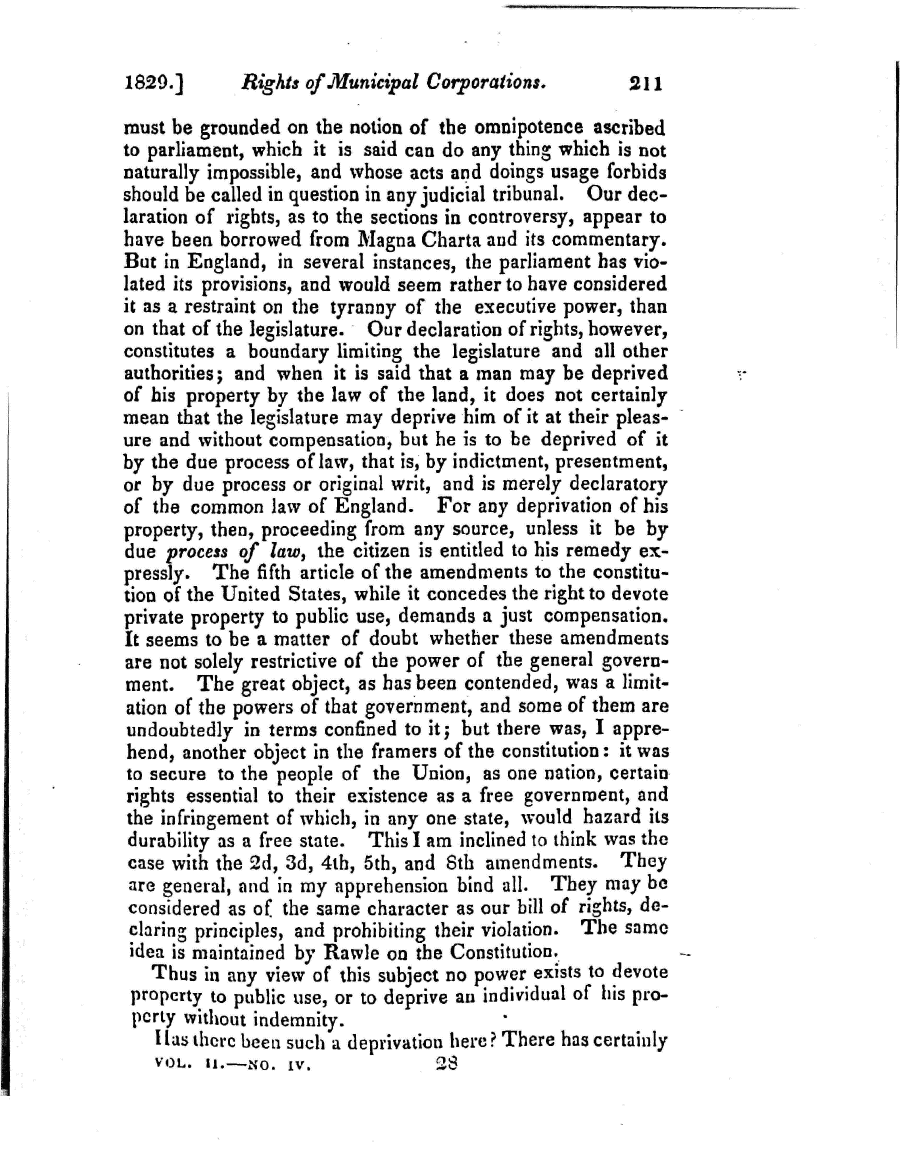|
1829.] Rights of Municipal Corporations. 211
must be grounded on the notion of the omnipotence ascribed
to parliament, which it is said can do any thing which is not
naturally impossible, and whose acts and doings usage forbids
should be called in question in any judicial tribunal. Our dec-
laration of rights, as to the sections in controversy, appear to
have been borrowed from Magna Charta and its commentary.
But in England, in several instances, the parliament has vio-
lated its provisions, and would seem rather to have considered
it as a restraint on the tyranny of the executive power, than
on that of the legislature. Our declaration of rights, however,
constitutes a boundary limiting the legislature and all other
authorities; and when it is said that a man may be deprived
of his property by the law of the land, it does not certainly
mean that the legislature may deprive him of it at their pleas-
ure and without compensation, but he is to be deprived of it
by the due process of law, that is, by indictment, presentment,
or by due process or original writ, and is merely declaratory
of the common law of England. For any deprivation of his
property, then, proceeding from any source, unless it be by
due process of law, the citizen is entitled to his remedy ex-
pressly. The fifth article of the amendments to the constitu-
tion of the United States, while it concedes the right to devote
private property to public use, demands a just compensation.
It seems to be a matter of doubt whether these amendments
are not solely restrictive of the power of the general govern-
ment. The great object, as has been contended, was a limit-
ation of the powers of that government, and some of them are
undoubtedly in terms confined to it; but there was, I appre-
hend, another object in the framers of the constitution: it was
to secure to the people of the Union, as one nation, certain
rights essential to their existence as a free government, and
the infringement of which, in any one state, would hazard its
durability as a free state. This I am inclined to think was the
case with the 2d, 3d, 4lh, 5th, and 8th amendments. They
are general, and in my apprehension bind all. They may be
considered as of the same character as our bill of rights, de-
claring principles, and prohibiting their violation. The same
idea is maintained by Rawle on the Constitution.
Thus in any view of this subject no power exists to devote
property to public use, or to deprive an individual of his pro-
perty without indemnity.
Has there been such a deprivation here? There has certainly
VOL. ii.óNO. iv. 28
|

